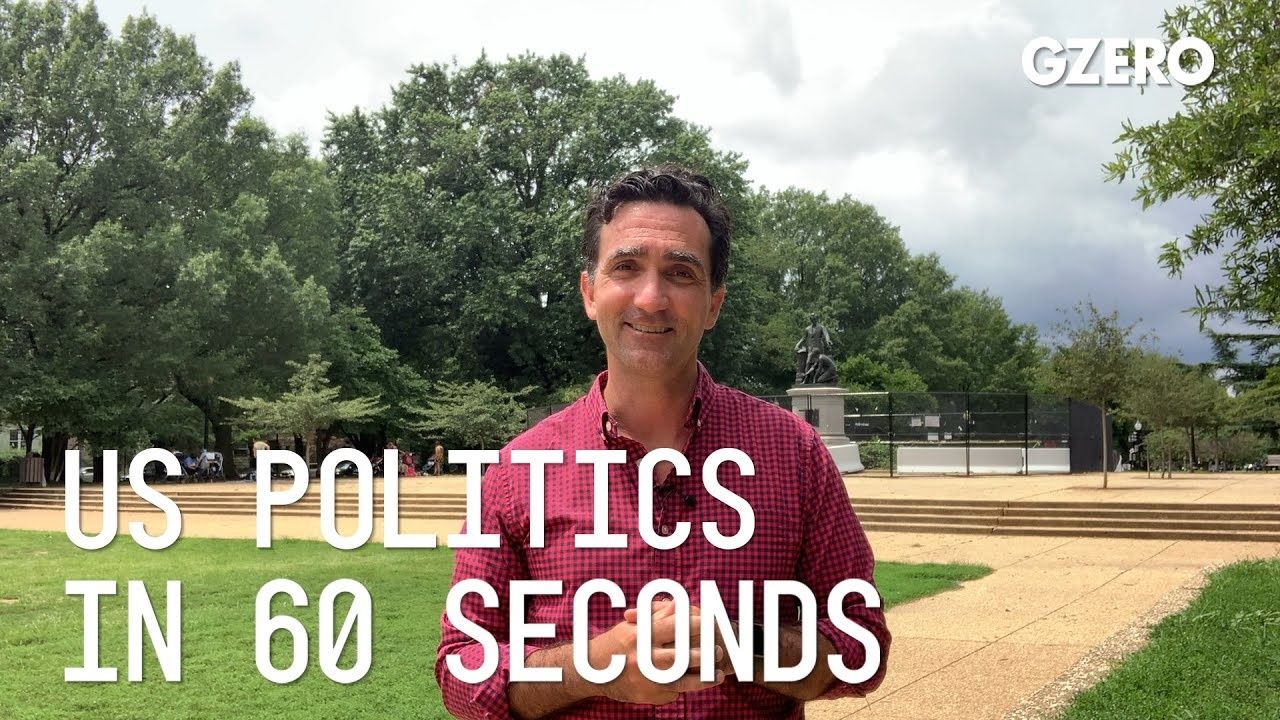
Jon Lieber, managing director for the United States at Eurasia Group, provides his perspective on US Politics In 60 Seconds - this week from in front of the Emancipation Memorial in Lincoln Park in Washington, D.C., which is currently behind barricades because some protesters want to tear it down.
First question, with the tit for tat escalation of closing consulates between the US and China, are US-China relations at an all-time low?
Well, they're certainly not very good. And probably the most important marker was a really tough speech given by Secretary of State Mike Pompeo at the Nixon Center in California. Perhaps important for its symbolism, that this is an end of an era of engagement that began with President Nixon in 1969. You've got a lot of escalating factors. You've got these closing embassies, accusations of espionage by the Chinese, the potential banning of TikTok. And WeChat in the US. You've got the potential banning of Huawei. And, of course, you've got the ongoing trade war and sanctions. Now, the trade war may become less important as a factor, along with the other worsening parts of this relationship. The Chinese have retaliated so far proportionately. They don't want to be seen as the ones escalating this advance of a presidential election.
Next question, with the presence of federal troops in Portland, does this blur federal state authorities and what's the line here?
Well, the president is well within his rights and means to enforce federal law inside the United States. And that's what he claims he's doing by sending troops in to protect the courthouses in Portland. However, his tactics have been controversial. For one, there's the use of unnamed-unidentified police officers, unmarked police vehicles. There is also accusations that the executive order under which he's doing this target's constitutionally protected speech. And, of course, there's the fact that the Portland mayor doesn't want the federal support. However, this isn't the case everywhere. The president has announced he's sending federal support to Chicago and Albuquerque and probably later in the summer, you're going to see federal support show up in Cleveland, Detroit and Milwaukee, the three large cities in swing states. And this is an obviously important electoral issue as the president continues to try to make his pitch to suburban voters.
Last question, who will Joe Biden pick as his running mate?
Well, I think this really depends on if Biden thinks he needs to pick an African-American woman or not. If he does decide to pick an African-American woman, he's so far ahead in the polls right now that he probably just goes to someone safe. The safest bet is a well-known Senator, Kamala Harris, who already ran for president. He also is looking at Representative Karen Bass, the head of the Congressional Black Caucus, and Susan Rice, President Obama's former national security adviser. That's less likely, though, because since 1972, there have been no running mates in the US that lack electoral experience, which she does not have. If he decides he doesn't need an African-American, then I think probably he goes with one of the governors that's available to him, Rhode Island and Michigan and perhaps New Mexico. These people have credible governing experience, could potentially run for president in four years, could step in if needed. But I think he's not going to do is pick a mayor or a progressive. Mayor because anything that happens in that major city becomes an issue on the campaign. He does not need that. And a progressive because that person is going to have a competing policy base inside the White House. And he knows as a former vice president, you've got to be on the same page.